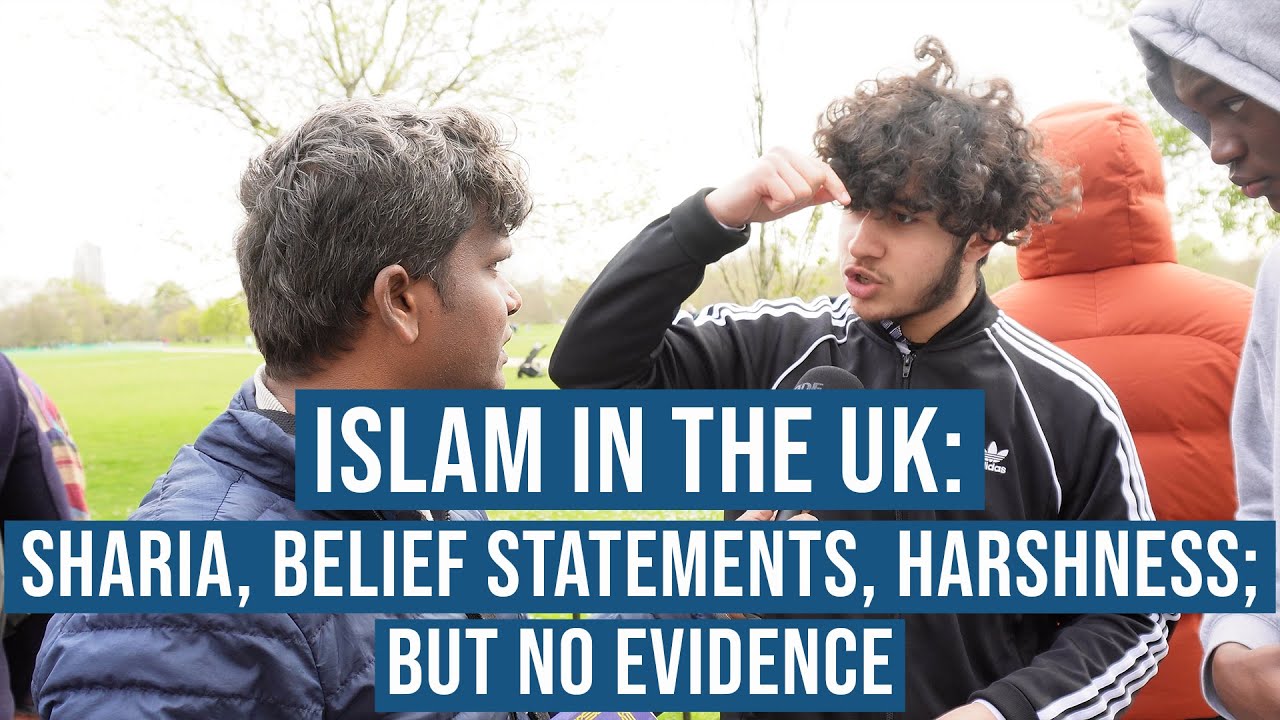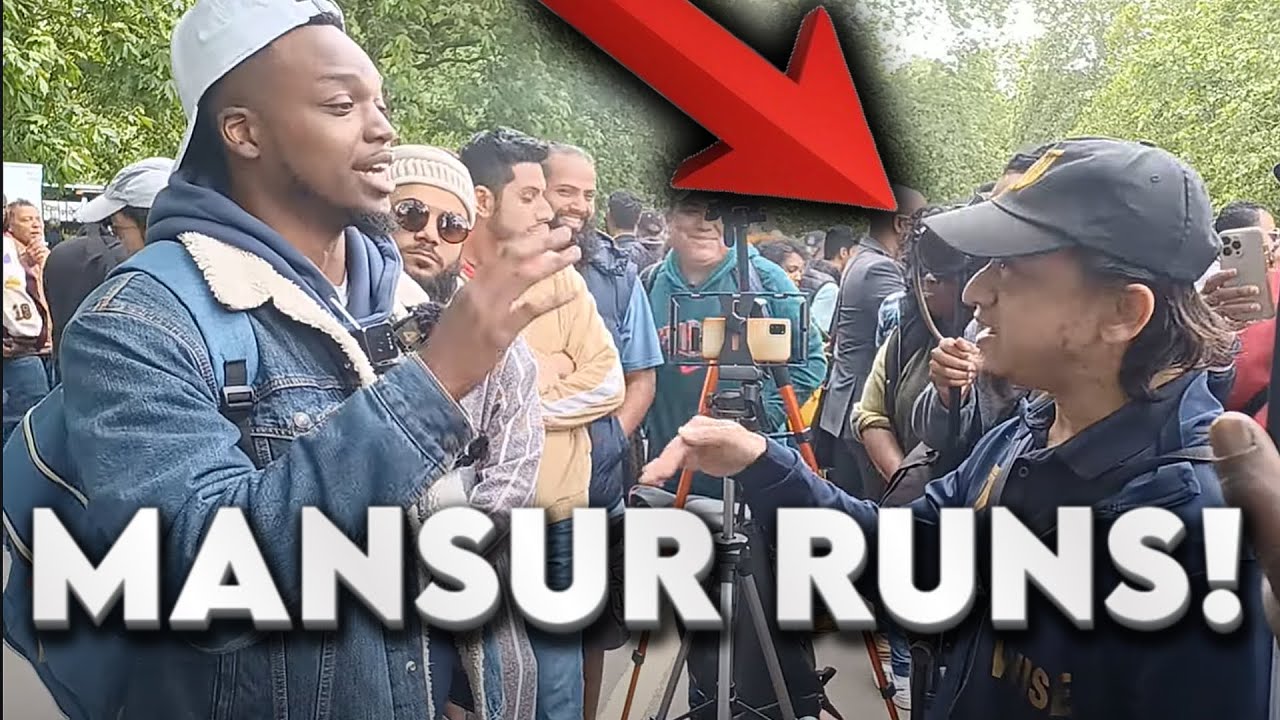Christian Challenges Muslim On The Preservation Of The Bible! Muhammed Ali
Summary
TLDRThe video captures a debate on the authenticity and preservation of religious texts, focusing on the Bible and the Quran. One speaker argues that the Bible is historically unreliable due to the lack of original manuscripts, highlighting the preservation of the Quran through early manuscripts like the Birmingham fragment. They emphasize that the Quran purifies the stories of biblical prophets, asserting that they were morally flawless, unlike some depictions in the Old Testament. The conversation also touches on the differences in religious beliefs, particularly the Quran’s version of prophetic narratives.
Takeaways
- 😀 The Bible is not considered historically reliable by the speaker due to the absence of original manuscripts from the first century.
- 😀 Early manuscripts of the Bible, such as P-52 and Codex Sinaiticus, are significantly later than the time of Jesus, raising doubts about its authenticity.
- 😀 The Dead Sea Scrolls, while important for the Old Testament, are still about 2,000 years removed from the time of Moses, casting doubt on their reliability.
- 😀 The Quran, in contrast, is argued to be preserved with evidence such as the Birmingham manuscript, carbon-dated to the first century and linked to Prophet Muhammad's life.
- 😀 The preservation of the Quran is seen as crucial because it ensures that the text is free from alterations, unlike the Bible, where the original text cannot be verified.
- 😀 Muslims believe in certain figures from the Old Testament, such as Moses, Noah, and Adam, but only in the versions that align with the Quran's teachings.
- 😀 The Quran is seen as correcting the perceived errors and changes in the Old Testament, particularly in the portrayal of prophets committing immoral acts.
- 😀 The speaker argues that the Quran purifies the prophets from any immoral actions, such as cheating, adultery, or other sins attributed to them in the Old Testament.
- 😀 A key point in the conversation is the distinction between belief in the original, unaltered revelation (the Quran) and the belief that the Bible has been changed over time.
- 😀 The conversation concludes with an agreement to disagree, acknowledging the differences in beliefs while maintaining respect for the differing views on religious texts.
Q & A
What is the speaker's main argument about the preservation of the Bible?
-The speaker argues that the Bible is not historically reliable because the earliest manuscripts we have are from centuries after the events described. They claim that no original manuscripts from the time of Jesus exist, with the oldest full manuscripts dating to the 4th century, such as the Codex Sinaiticus.
How does the speaker support the claim that the Quran is better preserved than the Bible?
-The speaker supports the claim that the Quran is better preserved by citing carbon-dated manuscripts from the first century, including the Birmingham Quran manuscript, which they argue comes from the time of the Prophet Muhammad. They emphasize that these early manuscripts ensure the Quran's preservation.
What is the significance of the Quran's preservation according to the speaker?
-According to the speaker, the preservation of the Quran is important because it ensures that what is written in the Quran accurately reflects the words of God. Without preservation, one cannot be sure which parts of a religious text are genuinely divine and which have been altered by human influence.
What role does the speaker believe historical manuscripts play in verifying a religious text's authenticity?
-The speaker believes that the authenticity of a religious text can be verified through historical manuscripts, particularly through carbon dating. The closer the manuscripts are to the original time period, the more reliable the text is considered to be.
Why does the speaker claim the Bible's manuscript evidence is insufficient?
-The speaker claims the Bible's manuscript evidence is insufficient because the earliest manuscripts available, such as P-52, are from the second century and are fragments, not full texts. They argue that this gap in time reduces the reliability of the Bible as a historically accurate text.
How does the speaker view the portrayal of prophets in the Bible compared to the Quran?
-The speaker views the portrayal of prophets in the Bible as flawed, mentioning instances where prophets are depicted as committing morally questionable actions, like incest or adultery. In contrast, the speaker believes that the Quran purifies these prophets from such actions, ensuring that they are portrayed as morally and spiritually impeccable.
What is the speaker's perspective on the Old Testament in relation to the Quran?
-The speaker explains that Muslims do not fully accept the Old Testament as it is because they believe it has been altered over time. However, they do accept the parts of the Old Testament that align with the Quranic teachings, particularly the stories of prophets like Moses, Adam, and Noah.
What does the speaker mean when they say that the Quran came to 'correct' the Old Testament?
-The speaker means that the Quran provides a more accurate version of the stories from the Old Testament, addressing what they believe are distortions or errors in the previous accounts. For example, the Quran corrects the depiction of prophets as engaging in immoral actions, which the speaker believes were wrongly attributed to them in the Bible.
What is the speaker's stance on the historical reliability of religious texts in general?
-The speaker's stance is that for a religious text to be historically reliable, it must be preserved from the time of its revelation without significant alterations. They emphasize that the absence of original manuscripts and the presence of discrepancies between versions of a text call into question its historical authenticity.
Why does the speaker believe it is important to know what God said versus what humans inserted?
-The speaker believes that it is crucial to distinguish between what God truly said and what humans may have altered or added in religious texts. This distinction is necessary to preserve the purity and authenticity of the divine message, which is vital for trusting the teachings of any religious text.
Outlines

Dieser Bereich ist nur für Premium-Benutzer verfügbar. Bitte führen Sie ein Upgrade durch, um auf diesen Abschnitt zuzugreifen.
Upgrade durchführenMindmap

Dieser Bereich ist nur für Premium-Benutzer verfügbar. Bitte führen Sie ein Upgrade durch, um auf diesen Abschnitt zuzugreifen.
Upgrade durchführenKeywords

Dieser Bereich ist nur für Premium-Benutzer verfügbar. Bitte führen Sie ein Upgrade durch, um auf diesen Abschnitt zuzugreifen.
Upgrade durchführenHighlights

Dieser Bereich ist nur für Premium-Benutzer verfügbar. Bitte führen Sie ein Upgrade durch, um auf diesen Abschnitt zuzugreifen.
Upgrade durchführenTranscripts

Dieser Bereich ist nur für Premium-Benutzer verfügbar. Bitte führen Sie ein Upgrade durch, um auf diesen Abschnitt zuzugreifen.
Upgrade durchführenWeitere ähnliche Videos ansehen

The DISASTEROUS Imperfect Preservation Of The Quran [Debate] | Sam Shamoun

Muslims Begin with a Sharia Threat But End Up Clearing the Space When Challenged | Arul Velusamy

How do you Know Who was really speaking! Hijab and Christian Speakers Corner

Genuine Couple Admits This About Islam And Christianity | Muhammed Ali | Speakers Corner

Christian Fails To Justify His Belief In The Bible | Sh.Uthman | Hashim

GodLogic DOMINATES Top Muslim Preacher at Speakers Corner! MUST WATCH!
5.0 / 5 (0 votes)
